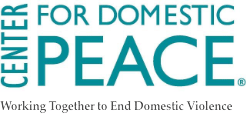If you are in danger or need help, here are some steps you can take:
Get to a safe place
Call 911
Call Center for Domestic Peace’s 24/7 Bilingual Hotline
Learn more about community resources and explore all your options, 24 hours/7days a week.
English/Spanish: 415.924.6616
Text Line: 415.526.2557 M-F, 9am-5pm
OR
1.800.799.SAFE (1.800.799.7233) for a domestic violence program near you.
Talk with a friend or relative that you trust about what is going on.
Seek medical attention if you are injured.
Ask our Hotline to help you create a safety plan to keep you and/or your children safe.
Remember you are not alone, and it is not your fault. If you or someone you know is being abused, call for help immediately. Call 911, or, if in Marin County, CA, call one of our Hotline numbers above.
ManKind
If you are a man who has concerns about his own violence, call our ManKind program number and visit our ManKind Program pages for support and prevention strategies.
WomanKind
If you are a woman who is concerned about her own violence, please call WomanKind to learn about classes that might help. Classes are offered Monday evenings.
Center for Domestic Peace IS AN EQUAL OPPORTUNITY AND AFFIRMATIVE ACTION EMPLOYER and does not discriminate on the basis of race, color, religious creed, ancestry, national origin, age, sex (including pregnancy, childbirth or related medical conditions), marital status, sexual orientation (heterosexuality, homosexuality and bisexuality), medical condition (cancer and genetic characteristics) or disability (medical and physical, including HIV and AIDS), and denial of family medical care leave and pregnancy leave.
We are committed to equal opportunity and cultural linguistic competency as a means to: oppose employment discrimination and oppression, 2) ensure diversity in our organization, 3) eliminate barriers so we are able to provide service to all victims, 4) provide culturally and linguistically appropriate services and accessible facilities and materials for disabled participants, and 5) promote healthy and equal relating while opposing discrimination and all forms of discrimination/harassment of marginalized groups.
